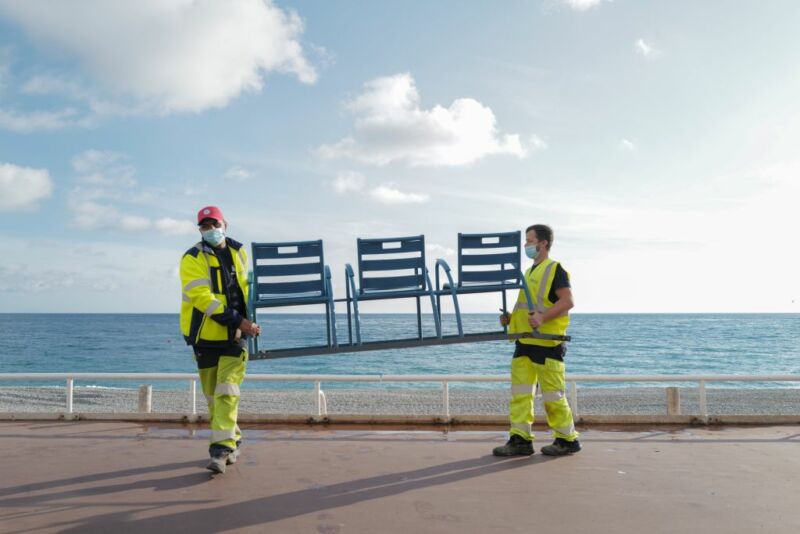A look at the psychological burdens of COVID lockdowns

Enlarge / Municipality employees remove the famous blue chairs on the "Promenade des anglais" in Nice, southern France, in order to limit opportunities for people to gather. (credit: VALERY HACHE / Getty Images)
With the dramatic rise in infections in the United States, there's increasing discussion of whether states need to go back to severe social restrictions or even lockdowns, in which only essential workers are allowed to leave their homes. But many people aren't happy about the idea of re-entering lockdowns because lockdowns exact both an economic and an emotional cost.
While we're likely to get lots of hard data on economic costs eventually, some researchers in New Zealand decided to look at the emotional toll. They performed a detailed survey at the height of lockdown and found that, as expected, the restrictions had an impact on people trapped in their houses for weeks. But the impact was more pronounced on the young and those who had experienced psychological distress previously.
Lockdown NZThe public health officials who advocate for lockdowns in response to soaring infection rates recognize that lockdowns exact an emotional toll on people who have to stay in their homes. The trade-off for this toll is the avoidance of death, severe illness, overloading of healthcare systems, etc. And the lockdowns are meant to be temporary; once infection rates drop sufficiently, then less draconian control measures (like social distancing, limiting gatherings, and mask use) can keep the infection rates low.
Read 13 remaining paragraphs | Comments